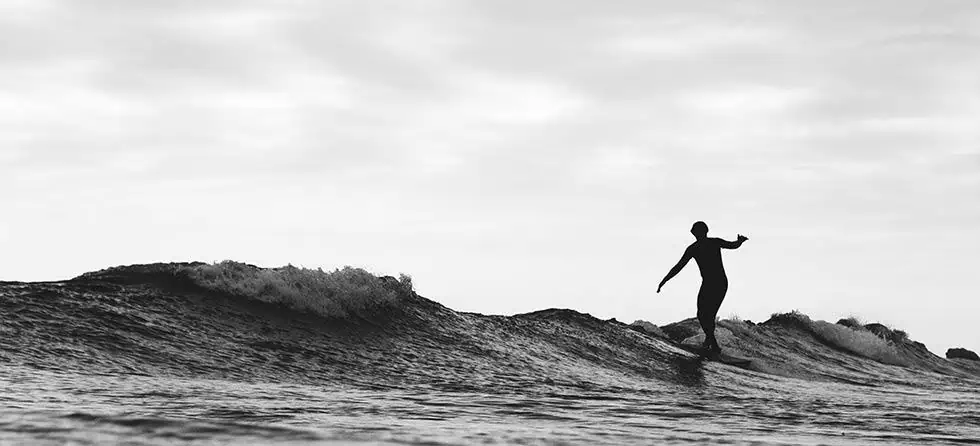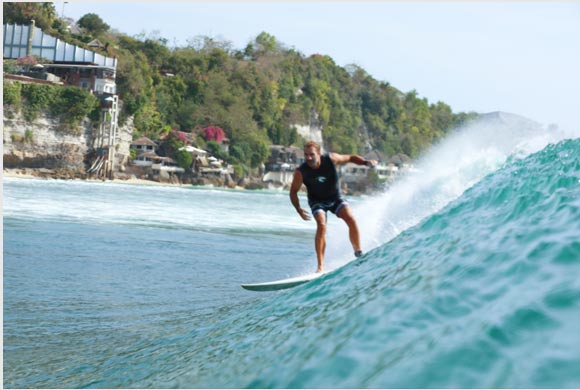HOW TO OVERCOME FEARS IN SURFING

Surfing can be really scary. The ocean is huge, wild, and always changing. There are no clear rules, and the waves can be really big and powerful. If you haven’t spent much time by the sea or had a bad experience before, you might be scared of surfing. But don’t worry, you can learn to surf and have fun by facing your fears and taking small steps. This guide will help you understand your fears and give you tips to overcome them.
Key Takeaways
- Face your fears directly by taking small, manageable steps.
- Build confidence through deep breathing and focusing on your technique.
- Understand what triggers your fear and acknowledge your feelings.
- Stay safe by checking weather conditions and using proper safety gear.
- Find joy in surfing by focusing on the present moment and celebrating small victories.
Facing Your Fears Head-On
Facing your fears in surfing is all about taking proactive steps. Don’t let fear hold you back! Here are some tips to help you tackle those fears head-on and enjoy the waves.
Visualize Success
Picture yourself riding the perfect wave. Visualization can be a powerful tool to build confidence and reduce anxiety. Imagine every detail, from the feel of the board under your feet to the sound of the ocean.
Start Small
Don’t try to conquer massive waves right away. Begin with smaller, manageable waves to build your skills and confidence. Gradually work your way up as you become more comfortable.
Seek Professional Guidance
A good surf instructor can make a world of difference. They can provide you with the skills and knowledge you need to feel more confident in the water. Plus, they’ll ensure you’re practicing in safe conditions.
Remember, every surfer started as a beginner. It’s okay to take small steps and seek help along the way.
Building Confidence in the Water
Practice Deep Breathing
When you’re out in the water, staying calm is key. Deep breathing helps you stay relaxed and focused. Try practicing some simple breathing exercises before you hit the waves. This will help you manage any anxiety and keep your cool when things get intense.
Focus on Technique
Good technique can make a world of difference. Spend time working on your paddling, popping up, and riding the waves. The more you practice, the more confident you’ll feel. Remember, it’s not about being perfect; it’s about getting better each time you go out.
Surround Yourself with Supportive Surfers
Surfing with friends who encourage you can boost your confidence. Find a group of surfers who are positive and supportive. They can offer tips, cheer you on, and help you feel more at ease in the water.
Confidence in the water comes from preparation and practice. The more time you spend in the ocean, the more comfortable you’ll become.
Understanding Fear Triggers
Identify Previous Challenges
Where does your fear come from? Maybe it’s from an experience that shook you up, like a near-drowning incident. Or perhaps it’s from not being prepared enough in the past. Pinpointing the source of your fear is the first step to overcoming it.
Acknowledge Your Emotions
It’s okay to feel scared. Surfing can be intimidating, and it’s natural to have fears. Acknowledge your emotions instead of pushing them away. This will help you deal with them better.
Once you know what you’re afraid of, you can start to tackle it head-on. Recognizing your fear is half the battle won.
Embracing the Learning Process
Celebrate Small Victories
Every little win counts! Whether it’s standing up on your board for the first time or catching a small wave, celebrate these moments. They build your confidence and keep you motivated.
Learn from Setbacks
Wipeouts and falls are part of the game. Instead of getting discouraged, ask yourself what you can learn from each experience. Did you lose balance? Did you misjudge the wave? Use these lessons to improve.
Stay Persistent and Patient
Surfing isn’t mastered overnight. It takes time, practice, and a lot of patience. Keep at it, and don’t rush the process. Remember, every pro surfer was once a beginner too.
Embrace the journey, not just the destination. Each session in the water is a step forward, no matter how small.
Staying Safe in Challenging Conditions
Check Weather and Wave Conditions
Before you even think about paddling out, always check the weather and wave conditions. Knowing what you’re up against can make a huge difference. Spend at least 15 minutes observing the ocean to gauge the size and power of the waves. If the waves look too big for your skill level, it’s okay to sit this one out.
Use Proper Safety Equipment
Your gear is your best friend in the water. Make sure your board, leash, and wetsuit are all in good condition. A snapped leash or a faulty board can turn a fun session into a dangerous situation. Double-check everything before you head out.
Know Your Limits
It’s crucial to be honest with yourself about your abilities. If you’re not comfortable with the size of the waves or the conditions, don’t push it. Surfing is supposed to be fun, not a test of bravery. Leave your ego at the shore and make smart decisions.
Overcoming Wipeouts and Falls
Practice Proper Falling Techniques
When you wipe out, knowing how to fall can make a big difference. Try to fall flat like a starfish to avoid hitting the reef or ocean floor. Practice this in smaller waves to get comfortable.
Stay Calm and Resurface Quickly
Panicking underwater can make things worse. Take a deep breath before you go under, stay calm, and resurface as quickly as you can. Remember, the ocean is powerful but you can handle it.
Learn to Navigate Underwater
Getting tossed around underwater can be scary. Learn to relax and go with the flow. Use your hands to protect your head and try to swim parallel to the shore to escape the turbulence.
Wipeouts are part of the learning process. Each fall teaches you something new and helps you become a better surfer.
Mental Preparation for Surfing
Practice Mindfulness and Meditation
Before hitting the waves, take a few moments to clear your mind. Deep breathing and meditation can help you stay calm and focused. This mental clarity will make a huge difference when you’re out in the water.
Visualize Your Surfing Goals
Picture yourself riding that perfect wave. Visualization can build confidence and reduce anxiety. Imagine every detail, from paddling out to standing up and riding the wave to shore.
Stay Positive and Optimistic
Keep a positive mindset. Instead of worrying about what could go wrong, focus on what could go right. Remember, every surfer started as a beginner. Embrace the journey and enjoy the ride!
Surfing is as much a mental game as it is a physical one. Prepare your mind, and the rest will follow.
Dealing with Peer Pressure
Set Your Own Pace
Surfing is all about finding your rhythm. Don’t let others rush you. Take your time to learn and enjoy the process. Remember, everyone was a beginner once.
Communicate Your Comfort Level
Be honest about what you’re comfortable with. If a wave looks too big, it’s okay to say no. Your true friends will understand and support your decisions.
Surf with Like-Minded Individuals
Find a group of surfers who share your mindset. Surrounding yourself with supportive and understanding people can make a huge difference. You’ll feel more at ease and confident in the water.
Surfing should be fun, not stressful. Stick with people who lift you up and make the experience enjoyable.
Finding Joy and Fun in Surfing
Focus on the Present Moment
When you’re out on the waves, let go of everything else. Feel the sun, the salt, and the sea. Forget about your worries and just be in the moment. Surfing is all about living in the now.
Laugh at Mistakes
Wipeouts are part of the game. Instead of getting frustrated, laugh it off! Every fall is a lesson and a step closer to mastering the waves. Remember, even the pros wipe out.
Celebrate the Joy of Riding Waves
There’s nothing like the thrill of catching a wave. Celebrate every ride, no matter how small. The joy of surfing comes from the simple pleasure of being on the water and feeling the power of the ocean beneath you.
Let go and just have fun – wipeouts can be fun, if you let them be.
The next time you find yourself being held back, try asking yourself these questions:
- Maybe
- This could be really fun
- I could get a heap of speed here / this could be an insane drop
Shift to possibilities and allow yourself to be surprised by what you can do when you try.
Overcoming fear of Big waves in surfing
Big waves can be intimidating, but they don’t have to hold you back. Surf fear is natural, but with the right mindset and approach, you can conquer it. Here are some tips to help you overcome your fears in surfing and tackle those big waves with confidence:
- Start Small: Begin with smaller waves and gradually work your way up. This helps build your confidence and skills without overwhelming you.
- Visualize Success: Picture yourself riding big waves smoothly. Visualization can be a powerful tool to reduce anxiety and boost your performance.
- Control Your Breathing: In panic-inducing situations, focus on your breath. Deep, slow breaths can help calm your mind and body.
- Learn from the Pros: Watch experienced surfers and learn from their techniques. Notice how they handle big waves and try to emulate their strategies.
- Stay Positive: Keep a positive mindset. Remind yourself that every surfer, even the pros, started somewhere and faced their own fears.
Remember, the ocean is a powerful place, but with respect and preparation, you can enjoy the thrill of riding big waves. Embrace the challenge and celebrate your progress, no matter how small.
overcoming the fear of dangerous rip currents
Learn to Identify Rip Currents
Rip currents can be scary, but knowing how to spot them can make all the difference. Look for choppy, brown water where sand is being pulled out to sea. Never try to fight a rip current; instead, paddle parallel to the shore to escape it.
- Check with lifeguards about current conditions.
- Avoid steep-sloping beaches with big waves.
- Practice swimming parallel to the shore.
The key is to stay calm and not exhaust yourself by fighting the current. Paddle sideways until you’re out of the rip, then head back to shore.
A good surf instructor will teach you how to identify and handle rip currents. Always surf with a buddy and keep an eye on each other. Safety first, fun second!
Overcoming the fear of marine life
Educate Yourself About Marine Life
When it comes to surfing, many people worry about encountering stingrays, jellyfish, sea urchins, crocodiles and especially sharks. Although shark attacks are rare, they often make the news and stir up fear. Understanding the ocean is key to overcoming these fears.
- Learn about the marine life.
- Know which creatures are common and which are rare.
- Understand the behavior of marine animals to reduce fear.
Fortunately for us in the Dominican republic we have had no shark, sting rays on crocodiles sightings, ( or attacks). There are surf destinations where you do have to be a bit more aware of what might sharing the ocean with you. A perfect empty wave in front of a rivermouth on an early morning in Australia, might give you an indication that there could be a shark sighting. There have been Crocodile sightings in the surf in Tamarindo, Costa Rica, so beware and take to locals.
The ocean is their home, and we are just visitors. Respecting marine life can help ease your fears.
Taking the time to educate yourself can make a huge difference. The more you know, the less you’ll fear the unknown. So, get curious and start learning!
Facing your fear of marine life can be a thrilling adventure. At Swell Surf Camp, we offer a safe and fun environment to help you conquer those fears. Whether it’s surfing, kitesurfing, or wing foiling, our experienced instructors are here to guide you every step of the way. Ready to take the plunge? Visit our website to learn more and start your journey today!
Conclusion
Surfing can be scary, but it’s also incredibly rewarding. By facing your fears head-on, building confidence, and understanding what triggers your fear, you can make huge strides. Remember, it’s all about the journey. Celebrate your small victories, learn from your setbacks, and stay patient. Always prioritize safety, especially in challenging conditions, and don’t let wipeouts discourage you. Mental preparation is key, so practice mindfulness and stay positive. Don’t let peer pressure rush you; surf at your own pace and with supportive friends. Most importantly, find joy in the ride. Whether it’s the thrill of catching a wave or laughing at a wipeout, surfing is meant to be fun. So get out there, embrace the ocean, and enjoy the adventure!
Frequently Asked Questions
How can I start overcoming my fear of surfing?
Begin by spending time in the water and getting to know the ocean. Start small and gradually challenge yourself with bigger waves as you gain confidence.
Why is it important to understand the ocean before surfing?
The ocean is unpredictable and powerful. Understanding its behavior can help you feel more comfortable and make safer decisions while surfing.
What should I do if I’m scared of deep water?
Make sure you are a capable swimmer. Practice treading water and staying calm. Let your instructor know about your fear so they can keep you in shallow water.
How can I manage my fear of big waves?
Control your breathing and stay calm. Start with smaller waves and gradually work your way up. Practicing yoga can help you manage your breath in stressful situations.
What are rip currents and how can I avoid them?
Rip currents are strong, narrow currents that flow from the shore back to the sea. Learn to identify them by looking for choppy, brown water. Avoid swimming in these areas.
How can I overcome my fear of marine life?
Educate yourself about the marine life in the area where you are surfing. Knowing what to expect can help reduce fear. Always shuffle your feet to avoid stingrays.
What safety equipment should I use while surfing?
Always use a leash to keep your surfboard close. Wear a wetsuit for protection and consider using a helmet if surfing in rocky areas.
How can I stay motivated to overcome my surfing fears?
Celebrate small victories and learn from setbacks. Surround yourself with supportive surfers and stay persistent. Focus on the joy of riding waves.
-
WHERE IS SWELL LOCATED?
Swell Surf camp is located on the North coast of the Dominican Republic, right in the center of the cool surfer town of Cabarete. With 3 international airports to choose from it's also one of the easiest places to get to for a quick surf getaway. Puerto Plata Airport is only 25 minutes away from Swell. On the' getting here' page you'll find the different options of getting to us.
-
ABOUT SWELL SURF CAMP
Founded in the winter of 2009, Swell Surf Camp emerged from Jeroen and Clare Mutsaars vision. They lived in the Dominican Republic for eight years and spotted a gap in the surf camp market for higher quality accommodations combined with an engaging social atmosphere. Their extensive travel and stay experiences across different countries like Costa Rica, Nicaragua, Peru, Hawaii, Indonesia and various European nations fueled their passion to elevate the surfing retreat experience.
Swell Surf Camp is renowned as the world’s first luxury surf camp tailored specifically for beginners. The founders collaborated with a notable Swiss architect to design facilities that blend comfort with style. This innovative approach ensures every guest enjoys superior lodging and amenities. Since its inception, Swell has taught over 9,000 people how to surf with an emphasis on safety, fun, and structure.
Our achievements speak volumes. Swell has collected numerous accolades and maintains hundreds of stellar reviews from guests globally. Recognized repeatedly as the leading destination for luxury surf vacations, our commitment to excellence keeps us at the forefront of the industry.
Beyond surfing, Swell offers a diverse range of activities including kitesurfing, wingfoiling, and yoga classes. Guests can also enjoy horse riding both on scenic beaches and mountain trails—plus exciting adventure-filled excursions like canyoning.
A crucial element of any vacation is food, and here at Swell we excel. We provide delicious home-cooked meals daily. For evenings out, guests find themselves just minutes away from an array of dining options that promise satisfying culinary adventures.
For those who prioritize upscale amenities and wellness in a unique setting built around learning surf skills amid profound natural beauty, Swell should be on the top of your surf destination list
-
WHAT TO EXPECT FROM A 1 WEEK LEARN TO SURF HOLIDAY
Dreaming of catching your first wave but wondering if surf lessons are really for you? At Swell Surf Camp, our lessons are designed specifically for beginners, and we mean absolute beginners, particularly those between 40 and 55 from cities like New York, Boston, or Toronto. You’ll never feel rushed, lost, or out of place. Our expert instructors genuinely love teaching, and their approach is as much about encouragement as it is about skill-building. Every instructor carefully tunes each lesson to fit one person, you, so you always get personalized support, whether you’re working on basic paddling, learning to pop up, or building confidence in the water.
The journey at Swell Surf Camp is about progression, not perfection. You’ll start with the very basics, practicing on the sand before moving into gentle ocean waves with your instructor right beside you. Throughout every lesson, our focus is on clear communication, safety, and keeping things fun. As you progress, our instructors give you feedback in real-time, helping you celebrate small wins and guiding your next steps. You’ll learn solid surfing foundations, water safety, and even the unwritten rules of surf culture. By the end of your stay, you’ll be amazed at your own growth and how natural surfing feels. Don’t wait to discover how transformative a single lesson can be, book your surf adventure at Swell Surf Camp and let your surfing journey begin!
-
WHAT SPORTS DOES SWELL OFFER?
It's not only surfing that's on offer at Swell, we also offer learn to wingfoil and learn to kitesurf packages.




